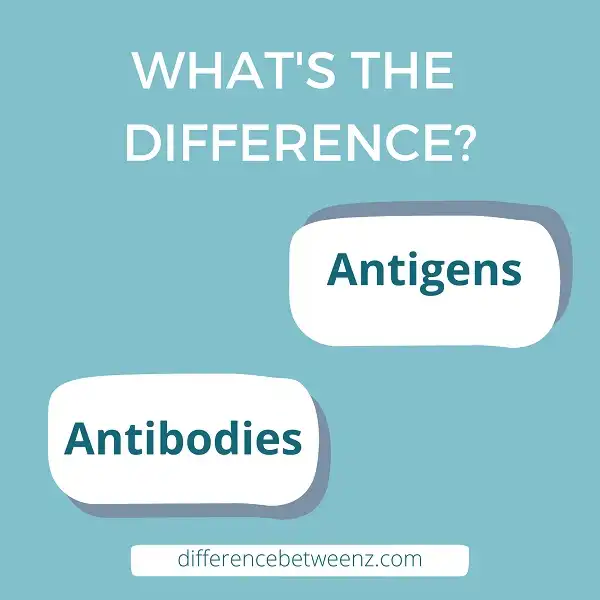When it comes to the immune system, there are a few key concepts that one must understand in order to have a basic understanding of how immunity works. One of these is the difference between antigens and antibodies. Antigens are proteins on the surface of cells that our immune cells recognize as ”foreign”. Antibodies are produced by our immune cells in response to an antigen invasion and they specifically bind to the antigen, making it easier for other immune cells to find and destroy. Let’s take a closer look at each of these concepts.
What is Antigen?
Antigens are molecules that are capable of eliciting an immune response. They are usually proteins or polysaccharides, and they can be found on the surface of cells or in body fluids. When an antigen enters the body, it is recognized as foreign by the immune system and triggers a response. The body produces antibodies, which bind to the antigens and help to neutralize them. Antigens can also cause a cell to produce cytokines, which are small proteins that regulate the immune response. Ultimately, the goal of the immune response is to eliminate the foreign antigens from the body and protect against future infections.
What is Antibody?
- Antibodies are proteins that are produced by the body in response to the presence of foreign substances, such as bacteria, viruses, or toxins. Each antibody is specifically tailored to bind to a particular molecule, known as an antigen. The binding of an antibody to an antigen triggers a variety of immune responses that ultimately help to remove the foreign substance from the body. Antibodies are found in blood and other bodily fluids, and they can also be isolated from laboratory animals that have been immunized against a particular disease.
- There are five main types of antibodies: IgA, IgD, IgE, IgG, and IgM. IgA is the most abundant type of antibody in the body, and it is found in mucous membranes, such as those lining the respiratory tract and gut. IgD is found on the surface of B cells, while IgE is involved in allergic reactions. IgG is the main type of antibody found in blood and body fluids, and it is responsible for providing immunity against infections. Finally, IgM is the first type of antibody to be produced in response to an infection, and it plays a key role in triggering the immune response.
Difference between Antigens and Antibodies
- Antigens are any foreign substance that triggers the immune system to produce antibodies. Antibodies are proteins produced by the body in response to an antigen in order to neutralize or destroy it. The main difference between antigens and antibodies is that antigens are responsible for triggering the immune response, while antibodies are responsible for carrying out the response.
- Another difference between antigens and antibodies in their structure. Antigens are typically large molecules with a complex structure, while antibodies are smaller proteins with a simpler structure. This difference is due to the fact that antigens must be able to bind to specific receptors on the surface of cells in order to trigger an immune response, while antibodies only need to be able to bind to the corresponding antigen.
- Finally, another difference between antigens and antibodies is their function. Antigens serve as a “signal” to the body that a foreign invader is present, while antibodies serve as the “weapon” that fights against the invader. In summary, the main differences between antigens and antibodies are their role in the immune response, their structure, and their function.
Conclusion
Antigens are proteins found on the surface of a virus, bacteria, or another microorganism. When these antigens are recognized by antibodies present in our blood, it triggers an immune response that can protect us from disease. The next time you hear about someone getting a flu shot, remember that those little viruses have antigens on their surface which trigger the production of antibodies to help fight off infection.


